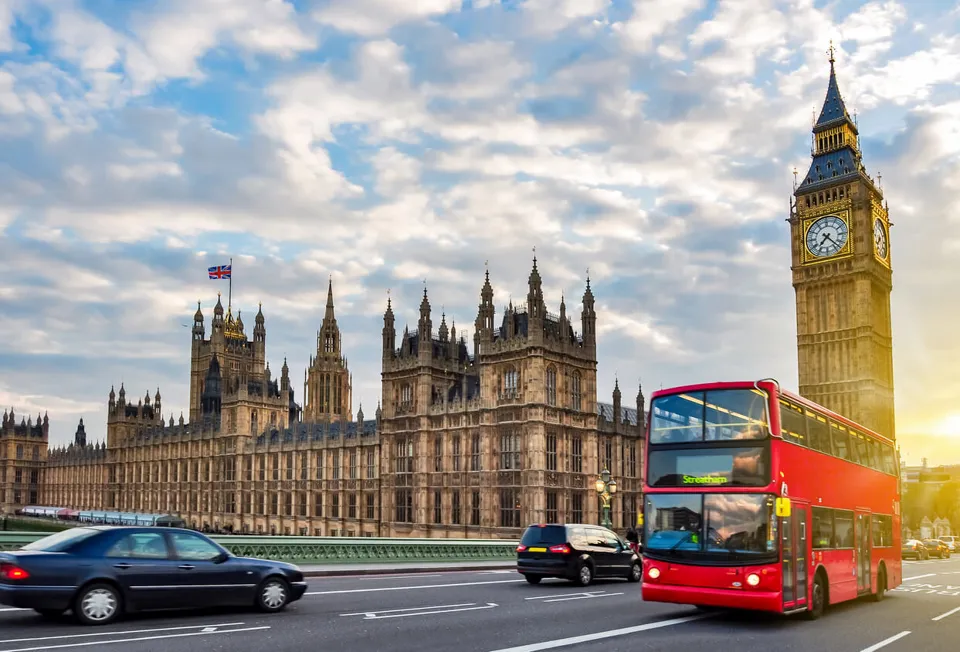A road-user charging scheme based on miles driven could be introduced in London to improve air quality and to cut congestion.
Some journeys would cost more – at busier times of day, in more congested areas or in more polluting vehicles – while others would cost less, such as shorter journeys in low-emission vehicles in quieter areas outside peak hours.
The new, integrated per mile charge would replace pre-existing schemes, such as the Congestion Charge and Ultra Low Emission Zone (ULEZ), with a single, unified system which takes into account both congestion and emissions objectives.
The proposal, which is one of a number of measures outlined in the mayor of London Sadiq Khan’s transport strategy, was published last month.
It says that the world has moved on from the 1990s, when the Congestion Charge was conceived and a camera-based system was the best way to administer the scheme. Given the development of tracking and telematics technology, it argues that it’s now worth considering whether road use should be paid for in a way that “better accounts for the impact and context of individual journeys”.
The Freight Transport Association (FTA) welcomed the move, but says the proposals must be well planned and take advantage of new technology available.
Natalie Chapman, head of policy for London, said: “The Congestion Charge has arguably played a role in suppressing traffic demand in central London, but FTA has always argued that it is a blunt tool which fails to recognise the essential role that freight plays in serving London’s businesses, residents and visitors.
“New and emerging technology could play a pivotal part in providing a more sophisticated system that accounts for the essential role of the vehicle and the time of day and incentivises cleaner vehicles.”
Sadiq Khan wants to make the capital’s entire road transport system zero emission by 2050, at the latest. This will be delivered through a phased approach, with zero emission zones being introduced in central London and town centres from 2025. A zero emission zone in inner London would follow by 2040 and a city-wide zone by 2050.
Transport for London (TfL), the mayor says, will lead by example, with the aim that all taxis and private hire vehicles will be zero emission capable by 2033 and buses will be zero emission by 2037.
Khan also wants to reduce and re-time freight through joint procurement or move them outside peak times, and encourage more delivery points for personal packages away from central areas and closer to where people live.
Approached in the right way, the transport strategy says that well-planned night-time deliveries need not disturb residents, and reviewing local restrictions that prevent night-time deliveries would help to shift more trips away from the busiest times.
In the short term, the strategy aims to reduce the amount of construction traffic in central London by 5% by 2020 and reduce overall van and lorry use in central London in the morning peak by 10% by 2026.
The FTA believes this is an unrealistic target given the needs of London’s growing population and the mayor’s agenda on demanding HGVs change shape to increase direct vision – a change which may cost load space, thus requiring more vehicles on London’s roads, it says.
However, Khan said: “It is vital that we take a bold approach to ensure our transport network works for all. We simply cannot afford to take the same old approach to travel as our growing population puts increasing pressure on our network.”
The former deputy mayor for environment in London, Matthew Pencharz, told Commercial Fleet he believes pollution hotspots across the country could see similar road-charging schemes introduced based on a ‘pay as you pollute’ model.
Tantalum, who Pencharz now works for, was awarded £1 million of Government cash earlier this year to develop Air.Car, a product which aims to accurately estimate NOx emissions in real time.
He highlighted how the Government, in its draft air quality plan, has urged local authorities to consider new technologies to curb emissions.
“I am sure that in the not too distant future, they’re going to be looking at this kind of solution,” he said.
Chapman concluded: “We need to ensure that any changes to road charging actually promote more efficient use of the transport network, and are not simply taxes by another name adding cost to operating and living in London.”
Consultation on the mayor of London’s strategy runs until October 2, with a final plan launched in early 2018.





















Yorkie - 10/08/2017 21:47
The Mayor's Transport Strategy is serious bad news - gratuitous road closures, removal of road space, making parking more expensive... sounds like a flat earther's dream. Some measures sound idealistic like car-free developments, but where the hell are we going to park legally? Wake up FTA! I can see why the Mayor has not publicised it more. Road pricing, whatever you like to call it is not at all popular, and Khan coincidentally admits he wants more money out of drivers. If you don't want to be a cash cow, object now! www.cantpaywontpay.london